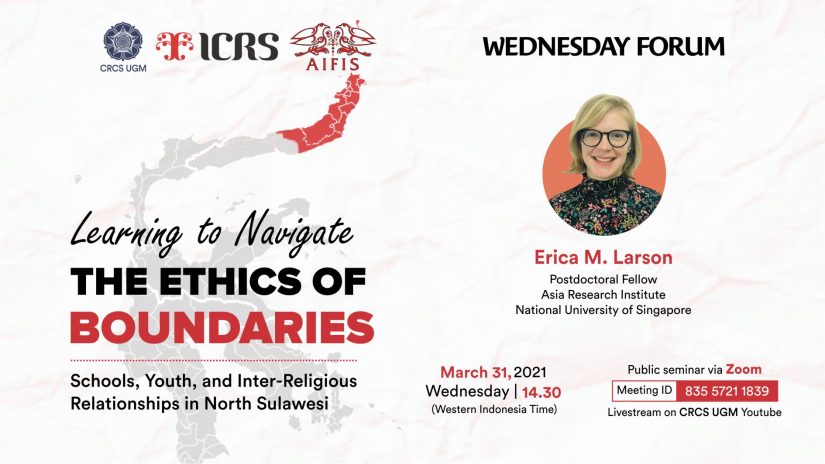
Learning to Navigate the Ethics of Boundaries: Schools, Youth, and Inter-Religious Relationships in North Sulawesi
Wednesday Forum – 31 March 2021
In this talk, I consider the complex conjunction of ethical frames that youth in majority-Protestant North Sulawesi are exposed to from national and local political debates, religious teachings, and their social experiences at school that shape their understandings of and approaches toward inter-religious boundaries. In North Sulawesi, inter-religious marriages are often cited as providing a framework of tolerance that sustains harmonious inter-religious relations in the region. On the other hand, discourses about the threat of inter-religious marriages and their association with proselytization also inform fears of religious conversion and a de-stabilization of identities. I demonstrate how these two broad ethical frames, channeled through schools and used to make sense of inter-religious encounters, depend on alternate understandings of subjectivity as either individualized or community-oriented.
About the spekaer. Erica M. Larson is a Postdoctoral Fellow in the Religion and Globalisation Cluster at the Asia Research Institute, National University of Singapore. She obtained her Ph.D. in Cultural Anthropology from Boston University (USA). Her research interests include education, religion, ethics, and politics in Indonesia and Southeast Asia.
The full poster of this event is available here.

